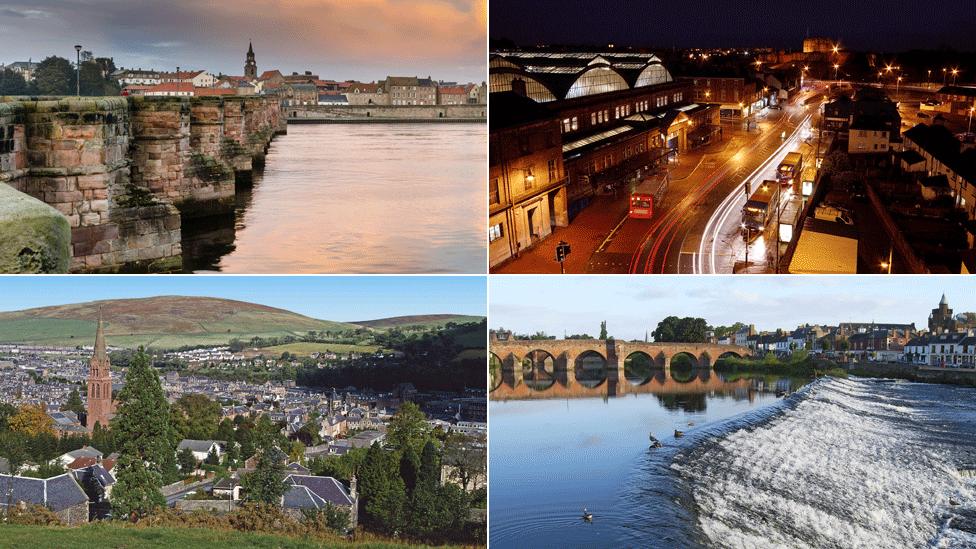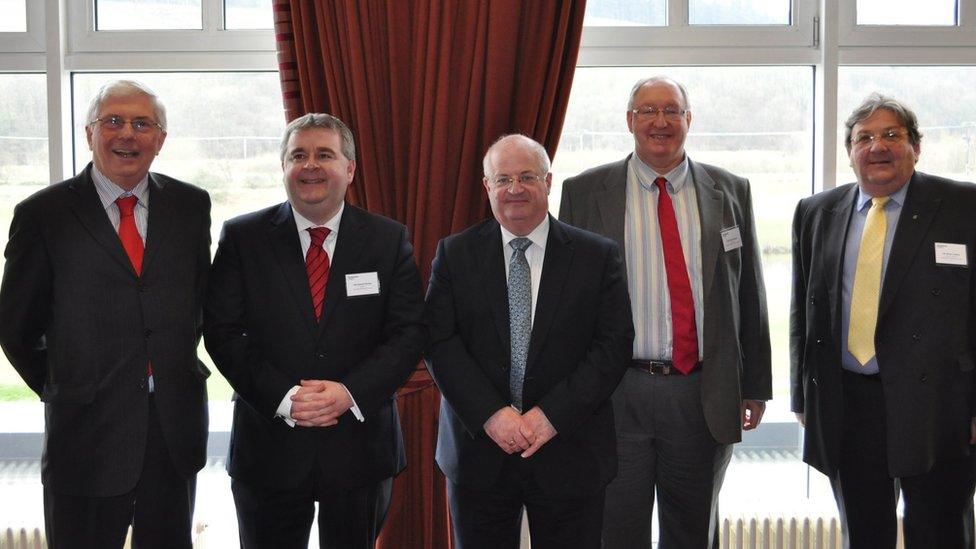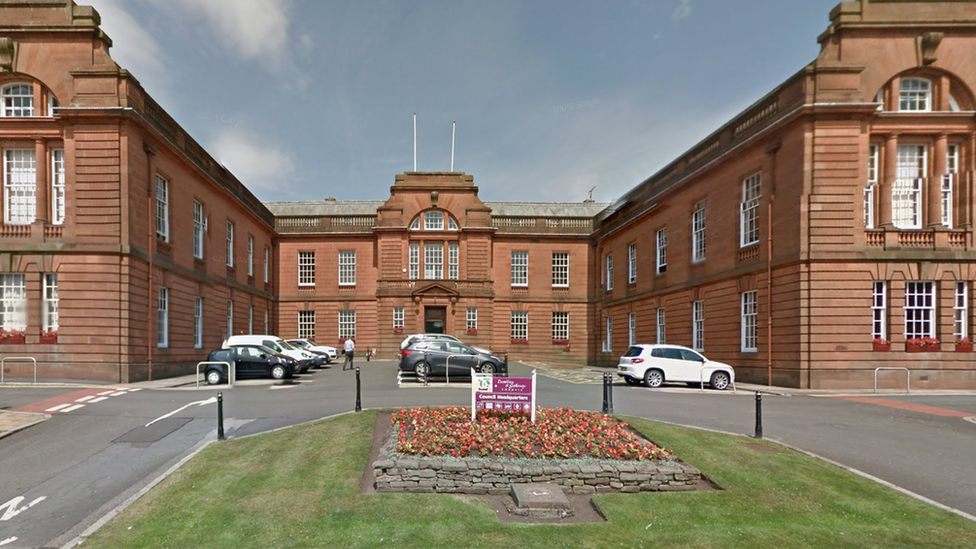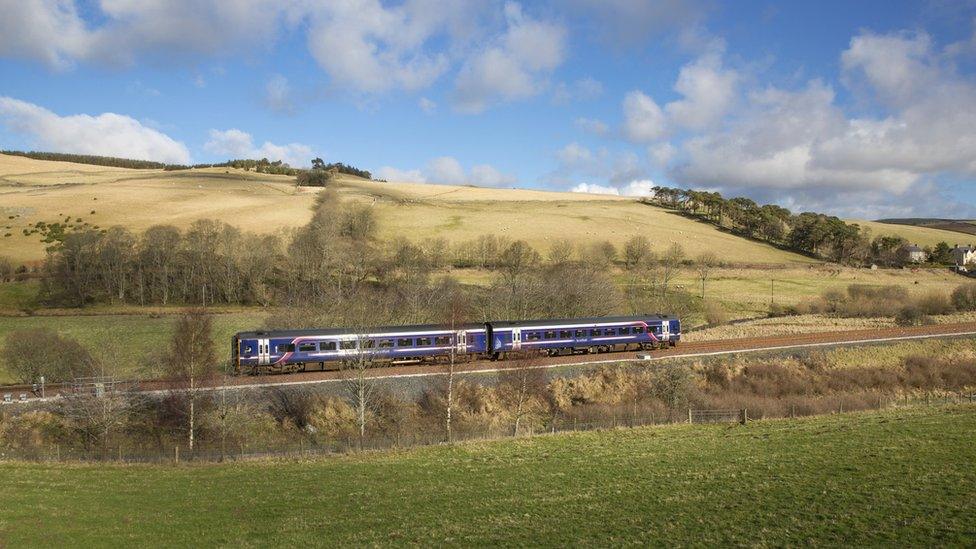Boosting the cross-border economy
- Published

If they wanted a name-check in the budget, then they got it.
But there was little more detail - for the time being at least - about the growth deal for the Borderlands.
The chancellor announced the UK government would "begin negotiations" on it and work with local partners and the Scottish government.
Once agreed, the deal will "support local priorities and bolster the region's economy" across the Scotland-England border.
But what, exactly, does that mean?

How did we get here?

Summit meetings between the five local authorities have discussed the way forward
The Borderlands report - produced by Northumbria and Durham Universities and the Institute for Public Policy Research North - was published in July 2013., external
It considered the implications for north east England and Cumbria of greater Scottish autonomy ahead of the independence referendum in 2014.
Shortly afterwards, following a cabinet meeting in Hawick, the Scottish government backed the efforts to look at boosting business and tourism in the area.
The local government minister at the time, Derek Mackay, said the government was keen to do all it could to look at "new ideas for co-operation".
A first Borderlands summit was held more than three years ago in Peebles to discuss how to take forward "key economic opportunities".
Further meetings have been held since and a detailed study carried out of what the initiative should hope to achieve., external
After the chancellor's endorsement, those involved said it could provide "tremendous opportunities" for the area's future economic stability.

Who is involved?

Five councils are part of the Borderlands Initiative looking at issues across the Scotland-England border
The Borderlands Initiative brings together five cross-border local authorities.
Carlisle City Council, Cumbria County Council, Dumfries and Galloway Council, Northumberland County Council and Scottish Borders Council are working together to "promote the economic growth and competitiveness" of the area straddling the Scotland-England border.
Earlier this year, they submitted a formal proposition to both the UK and Scottish governments for consideration.
It looked at what makes the area attractive to investors, visitors and people wishing to relocate there.
It also aimed to tackle the need for "population growth and improved productivity".

What will it mean for the area?

Extending the Borders Railway past Tweedbank to Carlisle is one area where some believe investment could go
The councils' have said their proposals to the UK and Scottish government are confidential and they would not be releasing further detail at present.
However, the initiative has a number of key themes which may give a clue to what they want to achieve.
It said transport and connectivity were "at the heart" of their proposals for the area.
That has led some to speculate that an extension of the Borders Railway line to Carlisle might be part of their thinking., external
An upgrade to the A75 and better broadband are other potential areas being explored.

How much investment might it bring?

City Deals in other parts of the UK have been worth hundreds of millions of pounds
Once again the details have been scant with everyone keen to stress that it is still at a "relatively early stage".
There was no financial commitment spelled out in the budget.
However, City Deal projects around Scotland that have already been announced have seen some impressive sums of money attached.
Glasgow, Edinburgh, Aberdeen, Inverness and their surrounding areas expect to secure billions of pounds via their agreements.
The Borderlands will hope to see an investment on a similar scale as its initiative moves forward.
"Our shared ambition is to play our full part in the regional and wider UK economy and unlock the potential of the south of Scotland and north of England," said a spokesperson.
It will require significant expenditure in order to achieve that goal.